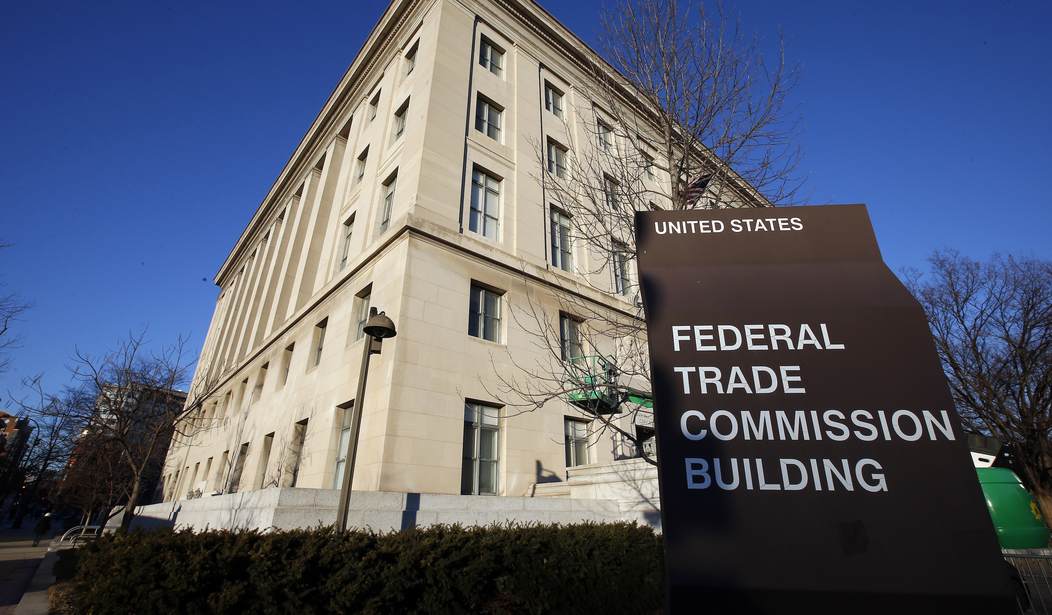The British antitrust cops just announced they will oppose the proposed blockbuster $68.7 billion merger of two American companies -- Microsoft and gaming company Activision Blizzard, the owner of the wildly popular game Call of Duty. This decision is bad news for investors in companies, gamers and workers. But it's very good news for America's competitors in Asia and Europe.
The foreign regulators claim the merger will give monopolistic power to Microsoft in the computer gaming industry.
The idea that Microsoft could monopolize this nearly $200 billion entertainment industry with tens of thousands of games and new ones introduced every day is far-fetched, to say the least. Even with the merger, Microsoft would only have about one-third of the computer console market that is now dominated by Sony. Sony's PlayStation has two-thirds of the market, and no doubt it is thrilled by the British government's action.
If there is a dominant player in this industry, it's the Japanese right now, not Microsoft.
The Brits and Europeans have been tossing spurious accusations of monopoly power at America's tech companies for years. They think Apple and Google are monopolies. Facebook was accused of being monopolistic before the market brought the company down on its own.
Euroland hasn't been able to compete in the tech arena. So they accuse U.S. companies that are profitable and dominant -- in products ranging from cellphones to search engines to social media platforms -- of being too powerful. They retaliate with hostile regulations, lawsuits, and, in some cases, trade barriers designed to knock American companies off their perch. These are simply taxes on American innovation. These are envy lawsuits.
Recommended
What makes this story nefarious is that instead of defending U.S. companies against these economic assaults aimed at American jobs, firms and shareholders, the U.S. Federal Trade Commission is working behind the scenes to aid and abet our attackers. The FTC has failed to make its boogeyman antitrust case against Microsoft in courts here at home, so they work with foreign regulators to kneecap the merger.
Foreign regulators are simply copycatting bogus claims made against Microsoft by ... the FTC.
Back in December, soon after the announced merger proposal, FTC Chair Lina Khan swooped in to oppose this marriage with "expansive legal theories," as the Wall Street Journal put it. This is the idea that somewhere, somehow, a consumer may be harmed by two private companies mutually agreeing to combine.
Khan comes with a professorial anti-business chip on her shoulder and hates almost all mergers and acquisitions. Of course, as a lawyer and an academic, she's never created a successful company herself. But she's a crusader against those who have. This is a woman who thinks it would be preferable for Spirit Airlines to go bankrupt and sell its assets off at auction, rather than get saved in a merger with JetBlue.
When Biden's FTC loses here at home, as it did in the Illumina and Grail merger, Khan doesn't throw in the towel. She conspires with foreign regulators to assist in their attacks on American companies. Khan isn't shy about her chummy relationship with her British regulatory counterpart Sarah Cardell -- an ideological Lina Khan mini-me.
Microsoft insiders tell me that the firm will challenge the baseless U.K. objections in court, as well as it should. But this will cost millions of dollars in legal fees and delays. Who benefits from this obstruction? Lawyers, for sure. After all, who will make tens of millions of dollars in legal fees? But not consumers. The gaming product that Microsoft wants to purchase is Call of Duty. Microsoft argues that the synergies from a marriage between the two companies will improve gaming products and make them more accessible and affordable.
Can you imagine the Japanese or the Chinese government trying to drive one of its own domestic companies to its knees? It would never happen.
Remember, we are talking about video games here. Not steel plants or top-secret military weapon systems. It's hard to detect any public interest being served here by blocking this merger.
It's all more evidence that Washington has moved from a Put America First economic agenda under President Donald Trump to a Put America Last ideology under President Joe Biden. With a more market-friendly administration, the U.S. government would be defending Microsoft against foreign aggressions and declaring the British action as an act of economic hostility. Which it is.
The game caught in the middle of this political tug of war is Call of Duty, but the actions by the British and American regulators are a clear case of dereliction of duty.
Lina Khan is just getting started with her crusade to slice and dice American businesses. In her budget proposal to Congress, the super-regulator wants a near 50% increase in her budget. Congress should instead cut it in half.

























Join the conversation as a VIP Member